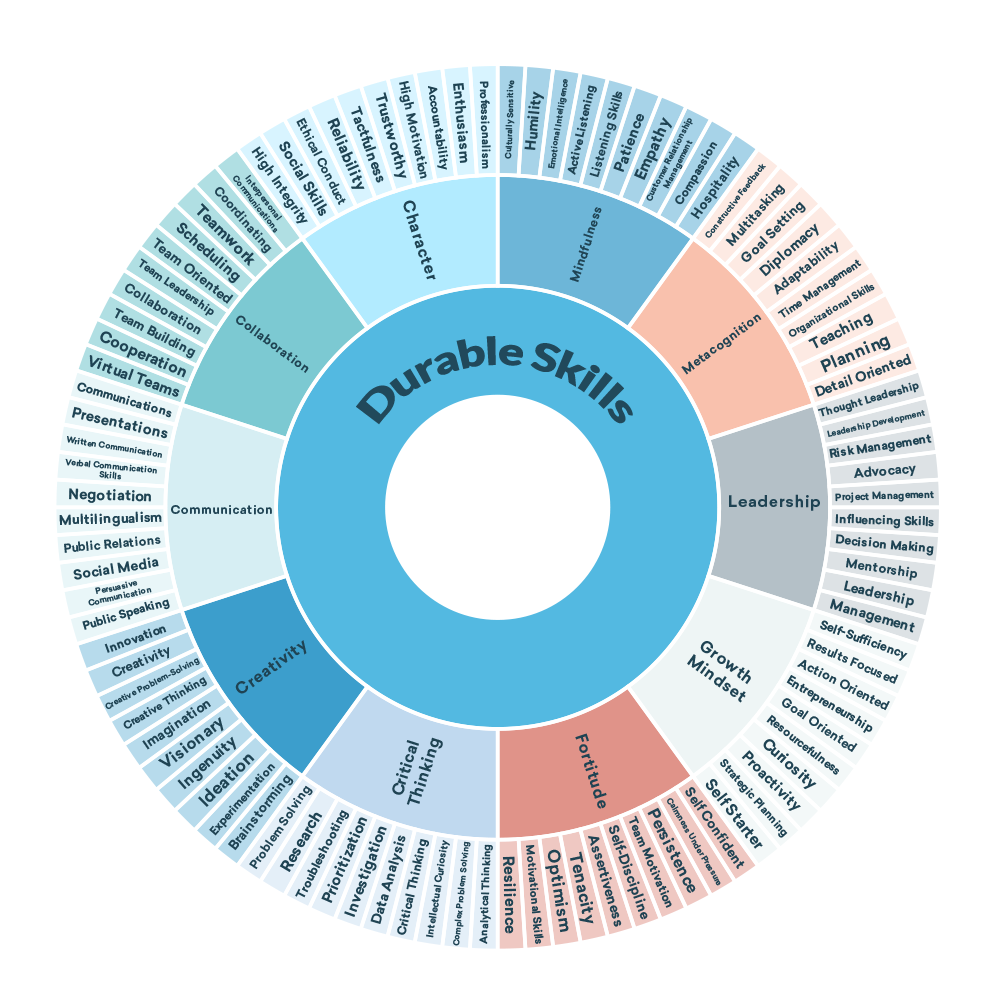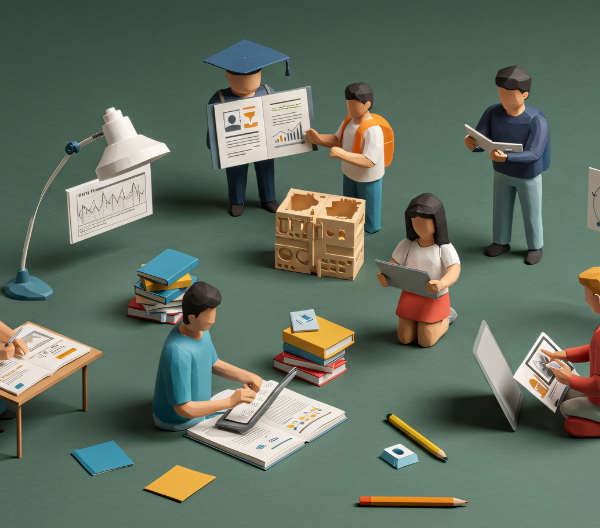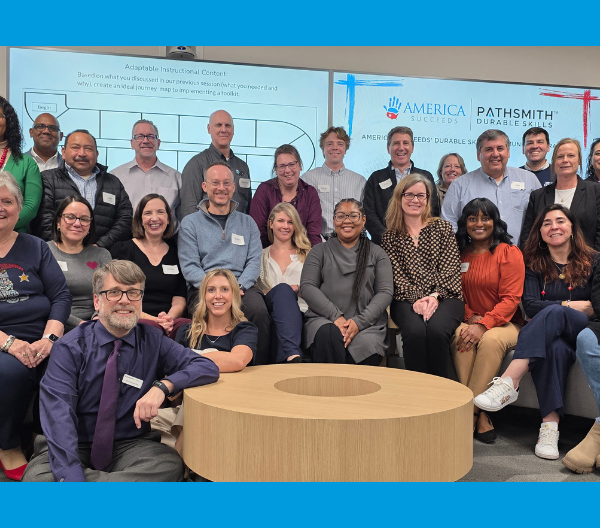How Durable Skills Are Highly Demanded In The Hospitality Industry
EHL Hospitality Business & Hotel Management School recently released an article that explores the most in-demand skills in hospitality as the world is changing.
The world is changing, the pandemic has caused all of us to change and we’re creating a new work environment.” Marc Benioff, CEO of Salesforce
https://finance-yahoo-com.cdn.ampproject.org/c/s/finance.yahoo.com/amphtml/video/salesforce-ceo-marc-benioff-companys-205619777.html
At America Succeeds, we agree. The world is changing.
We believe the purpose of schools today is to ensure students can think critically and creatively, collaborate effectively with others, apply skills and knowledge to solving real problems, and find meaningful, fulfilling ways to contribute to the world and their community.
At the center of this new purpose are Durable Skills, which are demanded by employers across the country in every industry sector, including hospitality.
We recently partnered with Emsi to analyze 82 million job postings to understand employer demand better. The results were overwhelming and make a powerful case for the universal demand for these durable skills regardless of geography, industry sector, or educational attainment level.
Key findings include:
- The top five durable skills are requested nearly four (3.8) times more than the top five hard skills
- Over 29 million postings (36 percent) requested at least three of these skills (primarily in what are considered the jobs of the future)
- Leadership and communication competencies are in highest demand, requested by 50+ percent of postings
America Succeeds’ Durable Skills

• Leadership: Directing efforts and delivering results
• Character: personal and professional conduct
• Collaboration: teamwork and connection
• Communication: Information exchange and management
• Creativity: New ideas and novel solutions
• Critical Thinking: Informed ideas and effective solutions
• Metacognition: Self understanding and personal management
• Mindfulness: Interpersonal and self awareness
• Growth Mindset: Improvement and aspiration
• Fortitude: Constitution and inspiration
Durable Skills and the 15 Most In-Demand Hospitality Skills
1. Online communication
Communication is one of the most sought-after Durable Skills. In a post-pandemic world, we must extend that skill to the online space. Companies are seeking remote workers at an all-time high. Remote work is here to stay, and our students should be prepared to work in a hybrid environment where they can effectively converse, read context clues through a screen or an email, and build and maintain relationships without the normal in-person contact.
2. Resilience, stress tolerance, and flexibility
We need to teach students how to adapt and be agile to ever-evolving situations. Whether that’s working from home during a pandemic or learning a new technical skill to help bolster business, continual adjustment is necessary for long-term success.
3. Intentional learning
Based on our analysis of Durable Skills, a growth mindset is one of the top 10 in-demand competencies. Educators and families should instill the importance of intentional improvement and aspiration to prepare their students for the future of work.
4. Collaboration & teamwork
Collaboration is another sought-after Durable Skill. Being able to work on a team and connect to your coworkers is important in any career field. There are multiple ways to teach collaboration in the classroom that prepare students to work with people of all types post-graduation.
5. Conflict management
In learning collaboration skills, students will likely run into conflict. For example, it can manifest itself through disagreement with people in a group project. But by using their skills and communicating effectively, students can learn how to negotiate and resolve issues that may present themselves in the workplace.
6. Creativity
We have highlighted creativity as a core competency of Durable Skills. It’s essential to illustrate to students how to think outside the box and develop new ideas and novel solutions. Creativity comes in many forms, providing educators instructional opportunities beyond the typical curricula.
7. Critical thinking
Critical thinking is a Durable Skill that can and should be taught to enable students to make knowledgeable decisions. And they don’t need a separate course to learn it; critical thinking can be taught in any subject. When students can compose informed ideas and then take them to create effective solutions, they are prepared for making choices that are best for their business.
8. Cognitive flexibility
Again, the ability to adapt and be flexible is paramount. Businesses are always evolving and expanding, and students should be prepared to follow suit. That can be done through learning new skills, aiding a different department, etc.
9. Complex problem-solving
This can also be known as ‘metacognition’. We believe every student should be equipped with the know-how to personally manage themselves. Just as collaboration is meaningful, it is also imperative that students can solve complex problems independent of their boss or supervisor.
10. People-centricity
This is a branch of collaboration, communication, and leadership competencies. In our research, leadership and collaboration competencies are in the highest demand. The ability to direct efforts, deliver results, and manage those results through teamwork is highly desired.
11. Reasoning, problem-solving, and ideation
Expanding on skill #9 and tagging the Durable Skill of critical thinking, we can see the impact of using data and research to defend and create solutions to business problems. Students can learn the importance of backing up reasoning with facts through scientific experiments and outlining the scientific method.
12. Troubleshooting and user experience
Pre-graduation, students should learn mindfulness skills to empathize with others. As they enter the workforce, this can help them identify with customers to fix or even predict potential issues – a key skill in many career paths, including hospitality.
13. Emotional intelligence
Emotional intelligence refers to the ability to perceive, control, and evaluate emotions. To be an effective leader or a future CEO, educators should prepare students to be able to handle and understand their emotions as well as the emotions of others in the workplace.
14. Service orientation
Branching off of communication, a service mindset is crucial to be able to connect to coworkers, clients, and supervisors while on the job.
15. Persuasion and negotiation
Persuasion and negotiation are critical skills to have in any toolkit. Students need to be able to advocate for themselves on a personal level while being a primary promoter of the businesses they work for when speaking with customers or clients.
The hotel and lodging industry exemplifies the American Dream, fostering development, upward mobility, and exciting life-long careers. As an industry built around hospitality, we recognize the important role durable skills play in helping our associates provide unparalleled guest experiences and innovate to build the future of the industry.” Rosanna Maietta, President & CEO of AHLA Foundation
Durable Skills Research Improves Education-to-Workforce Pathways
Although the need for inclusive, soft skills-based education and hiring was apparent long before the pandemic, COVID-19 greatly accelerated existing trends. As we look toward economic recovery, it has become even more critical to ensure every individual is prepared or upskilled with the Durable Skills necessary for long-term success in the workforce.
By focusing on common competencies instead of diverse technical needs, we have an opportunity to help a broader and more inclusive group of learners advance in career pathways for employees’ and employers’ mutual benefit.
We invite you to learn more about Durable Skills and support what we’re doing here at America Succeeds.




